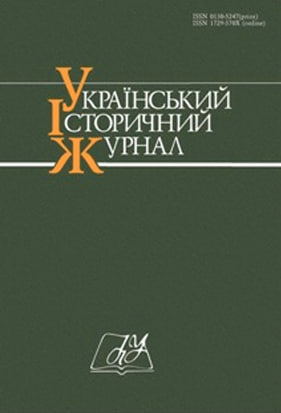Orthodoxy as a Factor of Political Mobilization of Social Existence of Ukraine and Bulgaria: Historical Parallels and Current Trends
DOI:
https://doi.org/10.15407/uhj2021.06.089Keywords:
Orthodoxy, political mobilization, Ukraine, Bulgaria, RussiaAbstract
The purpose of the study – to analyze the mobilizing influence of Orthodoxy in various manifestations of social development of Ukraine and Bulgaria in the socio-cultural and political spheres in historical perspective and at the present stage.
The research methodology is a set of methods that make up the comparative-historical method, as well as methods of comparative, discourse and content analysis.
A novelty is the definition and comparison of the mobilizing influence of Orthodoxy as a factor of socio-political and cultural changes in Ukraine and Bulgaria. Without denying that secularism is an immanent characteristic of the modern political organization of the countries of the European area, the article considers Orthodoxy as a source of legitimation of the power of these countries. The mobilizing role of Orthodoxy in nation- and state-building is analyzed as a part of their domestic political dynamics and as a subject of interest of foreign policy forces. Since both countries were and remain part of the so-called sphere of interests of the Russian Federation, the peculiarities of the implementation of this influence are considered.
The study concludes that, despite the fundamental difference in the nature of Russia’s influence on the Orthodox church life of Ukraine and Bulgaria in retrospect, today this influence is aimed at transforming both countries into part of the Russian World by similar methods. In this light, special attention is paid to the phenomenon of semiotic outsourcing. Under the conditions of typical today hydride forms of political confrontation – including information one – it is the “forging” of symbolically valuable signs, i.e. key to the national historical narrative elements of the nationally specific linguistic-semiotic sphere, becomes an influential tool for realizing foreign political interests. Thus, the role of the mobilization potential of Orthodoxy in the studied countries acquires special significance in the context of the creation of their historical narrative, the development of sovereignty and national-state existence in general.


